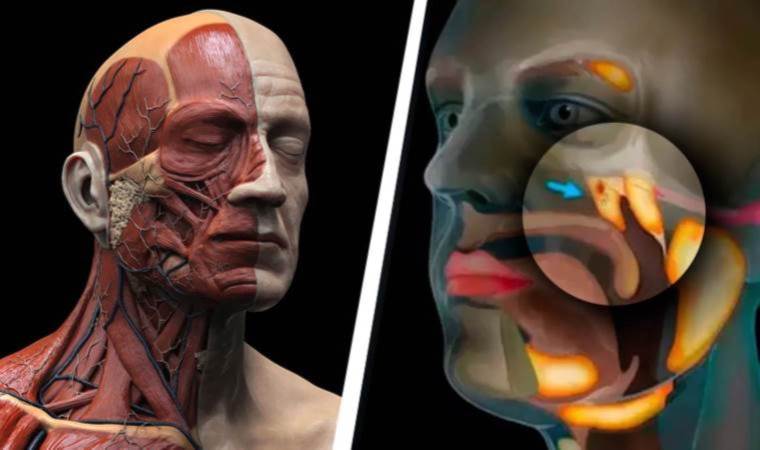A new organ has been discovered in the human body
Dutch researchers, while investigating prostate cancer, accidentally discovered an organ that had previously gone unnoticed. This organ is located just below the face, behind the nose; at the point where the nasal cavity meets the throat, and serves to "moisturize the area behind the nose and mouth."

The discovery occurred during a process where scientists from the Netherlands Cancer Institute were conducting CT and PET scans on patients injected with radioactive glucose for tumor treatment.
The team examining the scans noticed two areas inside the head lighting up during the injection, suggesting the presence of a pair of salivary glands and naming them 'tubarial salivary glands.'
Experts could not hide their surprise about how these glands remained unnoticed for so long.
HOPE FOR CANCER TREATMENT
Radiation oncologist Dr. Wouter Vogel from the Netherlands Cancer Institute mentioned that the glands required "very sensitive imaging" and were not easily accessible, which is why they had not been detected. Vogel said, "It is known that people have three sets of large salivary glands."
Scientists hope that these findings will help cancer patients receiving radiotherapy, as part of the treatment is believed to be linked to the tubarial salivary glands. The next step is to avoid damaging these organs during radiotherapy treatment, because according to Dr. Vogel, "A single misdirection can permanently damage the organ."
If experts can solve this, it could significantly improve the quality of life for people undergoing radiotherapy.
CAN THE GLANDS BE CLASSIFIED AS AN ORGAN?
Glands in the human body are structures that perform specialized functions, usually secreting substances, and can be classified as organs. They are considered organs mainly for the following reasons:
Specialized Structure and Function: Glands have a specific structure and perform specialized functions. For example, salivary glands produce saliva, and sweat glands secrete sweat.
Different Tissue Types: Glands are typically composed of one or more types of tissues. Epithelial tissue plays a significant role in the secretion function of these glands.
Interaction with Body Systems: Glands interact with other organs and systems in the body. For instance, the pancreas secretes digestive enzymes and also produces hormones that regulate blood sugar.
Vital Functions: Some glands perform functions of vital importance. For example, the thyroid gland secretes hormones that regulate metabolism; adrenal glands produce hormones related to stress and metabolism.
Considering these characteristics, glands can be said to be important and specialized organs in the human body. The diversity and functions of glands are critical for the smooth operation of the body.
Most Read News
-
 China integrates AI into undergraduate studies
China integrates AI into undergraduate studies
-
 South Korea, US to hold trade talks this week
South Korea, US to hold trade talks this week
-
 Germany cuts economic growth forecast to stagnation for
Germany cuts economic growth forecast to stagnation for
-
 6.3 magnitude earthquake strikes off Indonesia’s Talaud
6.3 magnitude earthquake strikes off Indonesia’s Talaud
-
 Kremlin says Putin open to talks on civilian strikes mor
Kremlin says Putin open to talks on civilian strikes mor
-
 South Korean military holds live-fire drills near inter-
South Korean military holds live-fire drills near inter-
-
 Wife of former US Senator Menendez found guilty in bribe
Wife of former US Senator Menendez found guilty in bribe
-
 Harvard University sues Trump administration over fundin
Harvard University sues Trump administration over fundin
-
 Zelenskyy demands Russian clarity over strikes on civili
Zelenskyy demands Russian clarity over strikes on civili
-
 Pope Francis' funeral to take place on April 26, Vatican
Pope Francis' funeral to take place on April 26, Vatican










